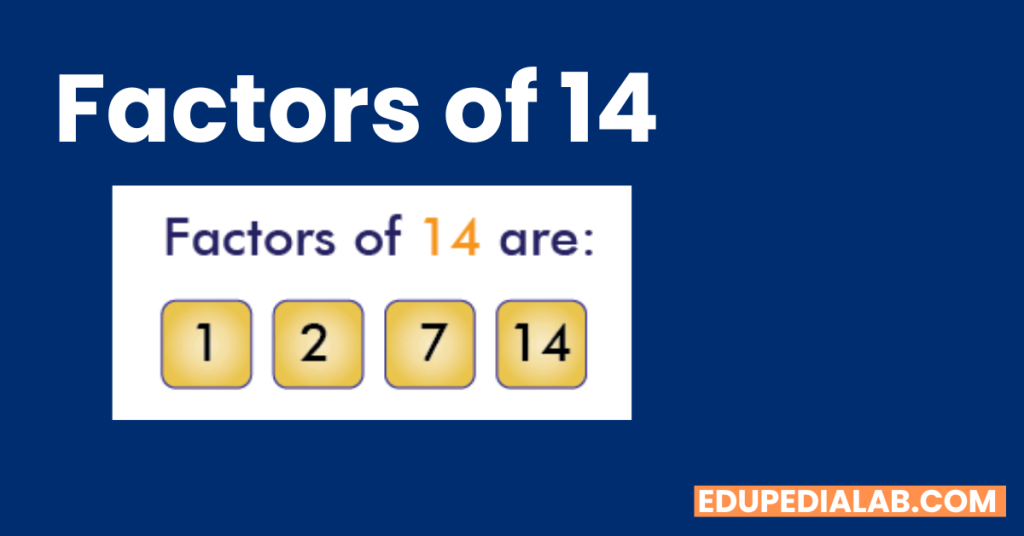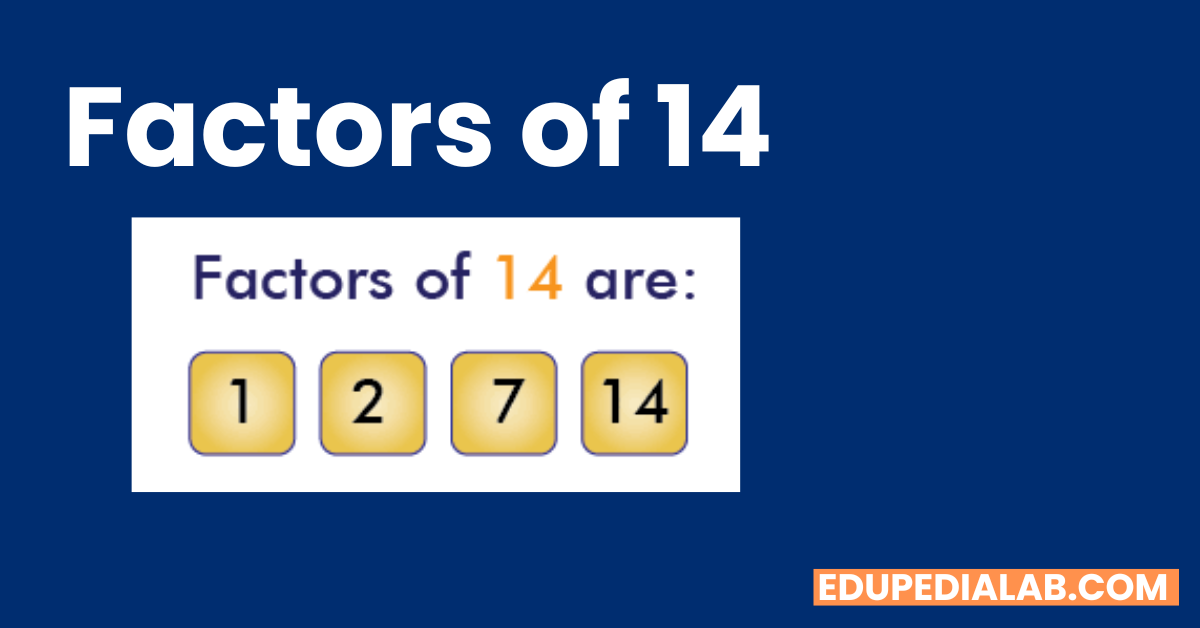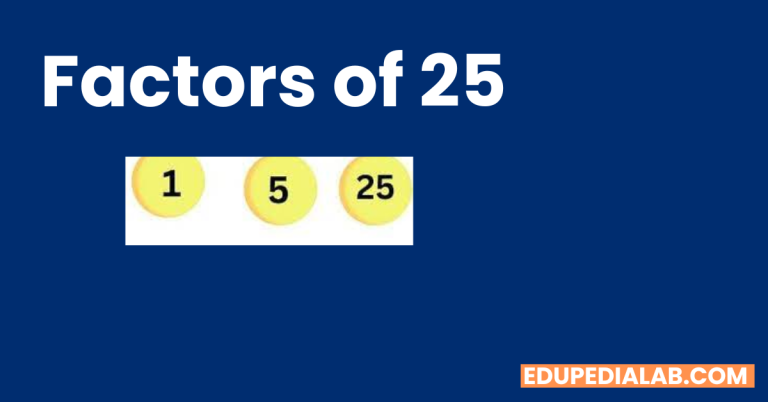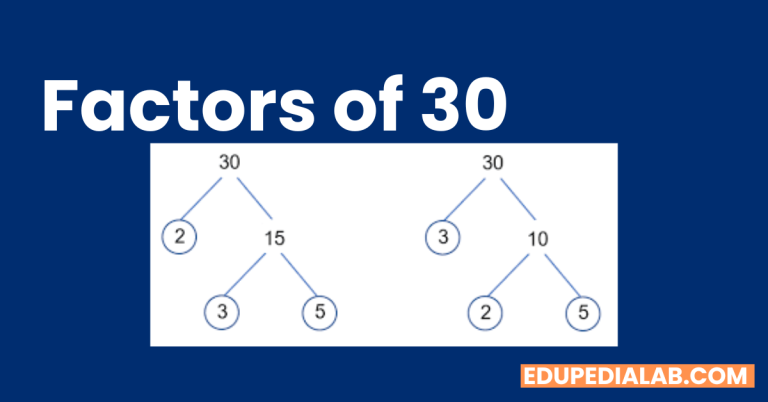Factors of 14 (Explained By Experts)
Factors of 14
When it comes to numbers, there’s always more than meets the eye. Take the number 14, for example. What are its factors? How can we break it down into smaller parts? In this comprehensive guide, we’ll dive into the world of numbers and explore the fascinating factors of 14. Whether you’re a math enthusiast or simply curious about the intricacies of numbers, this article will provide you with a deep understanding of the factors that make up 14. When you carefully look at the number 14 it is one of the Factors Of 28.

Factors Of 14
Let’s start by understanding what factors are. Factors are whole numbers that can be multiplied together to get another number. In the case of 14, its factors are the numbers that can be multiplied to obtain 14 as the product. These factors are 1, 2, 7, and 14.
- Factor 1: One of the factors of 14 is 1. Multiplying 1 by 14 gives us 14.
- Factor 2: Another factor of 14 is 2. When we multiply 2 by 7, we get 14.
- Factor 7: The number 7 is also a factor of 14. It can be multiplied by 2 to yield 14.
- Factor 14: Finally, 14 is a factor of itself. Multiplying 14 by 1 gives us 14.
Now that we know the factors of 14, let’s delve deeper into each of them to gain a better understanding.
The Factor 1: The Unity Factor
The number 1 is a special case when it comes to factors. It is known as the unity factor because multiplying any number by 1 gives the same number. In the case of 14, multiplying it by 1 simply gives us 14. The unity factor plays a crucial role in the world of numbers, ensuring that every number has at least one factor.
The Factor 2: The Even Factor
The number 2 is an even factor of 14. It is the smallest prime number and the only even prime number. Being a factor of 14, multiplying 2 by 7 yields 14. The even factor has its unique properties and significance in mathematics, making it an essential part of the factors of 14.
The Factor 7: The Lucky Factor
Lucky number 7! This factor brings its own charm to the factors of 14. Multiplying 7 by 2 gives us 14, making it a divisor of 14. The number 7 is considered lucky in many cultures and holds a special place in mathematics as well. It adds an interesting twist to the factors of 14.
The Factor 14: The Self-Factor
Every number is divisible by itself, and 14 is no exception. Multiplying 14 by 1 gives us 14, which makes 14 a factor of itself. This self-factor is an inherent property of all numbers and serves as a fundamental principle in mathematics.
Frequently Asked Questions (FAQs)
Q1: Are there any other factors of 14 apart from 1, 2, 7, and 14?
A1: No, those are the only factors of 14. Factors are the numbers that can divide the given number without leaving a remainder.
Q2: How can I find the factors of a different number?
A2: To find the factors of any number, you can start by dividing it by the prime numbers starting from 2 and moving upwards. If a number divides the given number without leaving a remainder, then it is a factor. Keep dividing the number by prime numbers until you reach the smallest possible factor.
Q3: Is 14 a prime number?
A3: No, 14 is not a prime number because it has factors other than 1 and itself. Prime numbers have only two factors, 1 and the number itself.
Q4: Can the factors of 14 be used in other mathematical calculations?
A4: Absolutely! The factors of 14 have applications in various mathematical calculations and concepts. For example, when finding the greatest common divisor (GCD) of two numbers, the common factors of both numbers play a significant role.
Q5: What are the practical implications of understanding the factors of 14?
A5: Understanding the factors of 14, or any number for that matter, helps in problem-solving, mathematical analysis, and pattern recognition. It forms the foundation for various mathematical concepts, including prime factorization, divisibility rules, and finding common multiples.
Q6: Are there any real-life applications of the factors of 14?
A6: Yes, the factors of 14 can be found in real-life scenarios, such as when calculating ratios, proportions, or dividing resources equally among a certain number of individuals. Understanding factors helps in practical situations where numbers need to be divided or distributed.
Conclusion
In conclusion, the factors of 14 are 1, 2, 7, and 14. Each factor plays a unique role in the composition of this number. Factors are essential in understanding the relationships and properties of numbers, and they have practical applications in various mathematical and real-life scenarios. By exploring the factors of 14, we gain a deeper appreciation for the intricacies of numbers and their fascinating properties.
So the next time you come across the number 14, remember its factors and the rich mathematical concepts they represent. Keep exploring the world of numbers, and you’ll discover the beauty and complexity hidden within them.






2 Comments